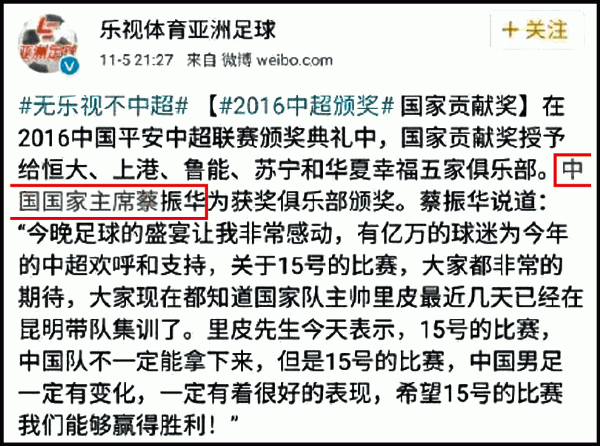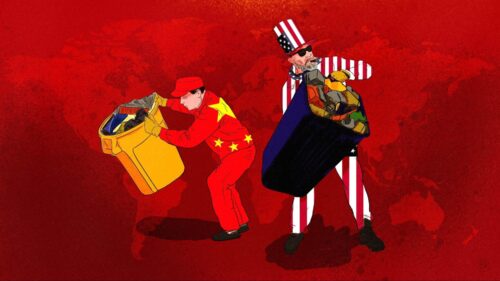When a typo is no laughing matter
David Bandurski discusses the dangers of editing mistakes in Chinese media.

“Trump campaign chief charged with battery,” read a New York Times headline in March, drawing sniggers from journalists and aficionados. Captions like this one are standard fare at “The Lower Case,” a column in the Columbia Journalism Review that for years has stocked its cupboard with deliciously unfortunate media gaffes. (“Police discover crack in Australia,” the International Herald Tribune reported years ago.)

But in China, where political control of the media is a serious priority, blunders of this kind can be a grave matter. Last month, a social media account run by the video website LeTV ran the story of an awards ceremony hosted by the All-China Soccer Society in which it identified the national soccer chief as “Chinese president Cai Zhenhua.” In almost any other country, the matter would have ended with a correction and a collective chuckle at the editor’s expense. But for the Chinese Communist Party, which has positioned Xi Jinping as “the core,” this was an unacceptable breach. The web editor was fired within 24 hours.
Back in July, the popular internet portal site QQ.com meant to report that President Xi Jinping had “delivered an important speech” at an event commemorating the party’s 95th anniversary. But a careless editor bungled the Chinese word for “deliver,” fabiao [发表 fābiǎo], and used instead a homonym that means “to flip out” [发飙 fābiāo]. The idea of a crazed president was too much for the authorities: The website’s top two editors were reshuffled. More impactfully, oversight of the website was turned over from local authorities in Shenzhen to Beijing’s hawkish central cyberspace office.
State-run news outlets have themselves blundered. In a series of reports from the annual National People’s Congress last March, a reporter for the official Xinhua News Agency identified President Xi Jinping not as “China’s top leader” but as “China’s last leader.” The goof came just weeks after Xi made an official visit to the Beijing offices of Xinhua and the People’s Daily newspaper, where he underscored the need for all media to “love, protect and serve” the Communist Party.
Perhaps the most regrettable typo came last year during President Xi’s visit to South Africa. China News Service, the country’s number-two official news agency, reported that Xi had “made a speech,” or zhici [致词 zhìcí]. But the newswire slipped and substituted the similar-sounding phrase cizhi [辞职 cízhí], or “to offer one’s resignation.” Four editors were dealt prompt suspensions.
For its part, LeTV issued an apology on social media as soon as the mistake was caught. The company swiftly announced that an editor responsible for “a major error in describing the position of a VIP attending the event” had been fired, and that others, including the editor-in-chief, had received fines for their “serious mistakes.”
However, even the reference to LeTV’s error proved too volatile for the authorities. Within hours, the apology itself had been removed — a reminder that any breach in news control, intentional or otherwise, is no laughing matter.





